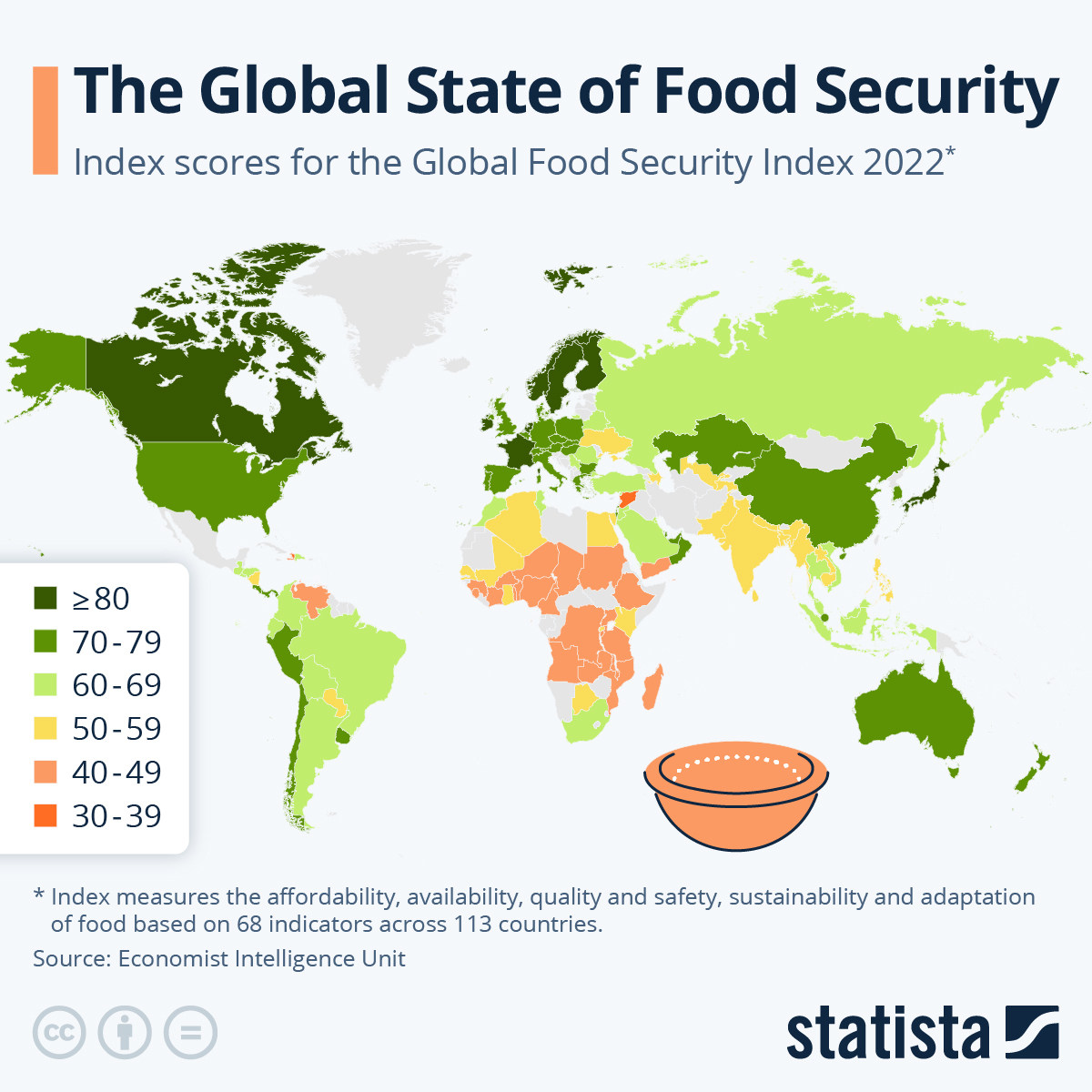Global food security deteriorated between 2019 and 2022, according to the latest Global Food Security Index by the Economist Intelligence Unit. The index measures the affordability, availability, quality and safety, as well as sustainability and adaptation of food across 68 indicators in 113 countries.
Finland, Ireland and Norway were named as the countries with the highest levels of food security in 2022, while Yemen, Haiti and Syria had the lowest. The gap between the best and worst performers has been growing since 2019, highlighting the worsening state of inequality in the global food system. The United States comes in rank 13 out of 113, with a score of 78.0.
Food security declined the most drastically between 2022 and 2012 in Syria, falling a total of 10.5 points. It also worsened in nine other countries in that time frame, the worst of which were Haiti (-5.4), Venezuela (-4.9), Colombia (-2.2) and Zambia (-1.8).
According to the EIU, the food system’s weakening is due to a number of overlapping risks, including volatility in agricultural production, scarcity of natural resources, increasing economic inequality, a rising number of climate-induced shocks such as droughts and floods, as well as trade and supply-chain volatility. Armed conflict too is strongly linked to lower food security scores, affecting not only supply-chain infrastructure but also leading to water, soil or land contamination.





















